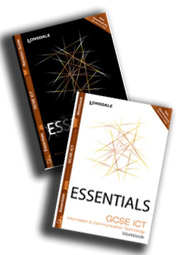With the new academic year upon us, I wonder what troubles lurk ahead and in particular the developing shape of the ICT/Computing curriculum. As indicators of progress in alternative designs to the computing curriculum, I’ve just been reading reports of progress which have been written by the “Computing at School” group (a spin off from the BCS) and the report from The Royal Society. It’s gratifying when the views of respected organisations are aligned with one’s own of course, but more importantly, here are major players in the academic and industrial fields finding the current curricular offerings to lack challenge and significance for the more able students. If you haven’t read it, it’s a thought provoking read at:
http://www.computingatschool.org.uk/index.php?id=the-challenge
and also, the report from The Royal Society “Shut down or restart?”:
http://royalsociety.org/education/policy/computing-in-schools/report/
I guess we already knew, but this spells it out. We really do need to take the medicine and recognise the contribution we could make to the employment potential of those in education and of course the future prosperity of the country.
Continuing down the Computing at School route, the results of the working group for the design of a KS 1-4 curriculum are worth looking at (you can download the current curriculum document). It is interesting that the group have used the title “Computer Science”, presumably to put some distance between themselves and the existing/extinct National Curriculum for ICT though whether it represents a “science” is a an arguable point. It is clear that some thought and fine principles have gone into drafting the document: the notion of inclusivity by virtue of all pupils having “opportunities”, for example to learn and to take a GCSE in Computer Science. I think this is a good standpoint in that the authors imply that they do not imagine all pupils to be marched into examination in the subject; the idea that the curriculum should be its own recruiter by being engaging to study and perceived as rewarding is morally correct in my view. No reliance on coercion to fill classrooms and examination entries! It’s also interesting that the authors avoid current examples of software and hardware by relying on “enduring principles rather than current hot topics” with the hope that the curriculum should be enduring. I imagine that, if this means relatively stable, it will meet with some welcome.
Looking at the curriculum, teaching it is going to be the key. A determination to establish overarching principles is evident, even at KS 1 abstract ideas are present. No bad thing; it’s inexcusable to talk down to anyone but, on reading the “Range and content” of the new curriculum, I wondered whether the curriculum would thin down appreciably in KS 1 and for lower ability pupils at all key stages;. This would be a pity, because without a range of substance I can see this welcome curriculum being self selecting and only make an appearance in academic hot-houses. There is perhaps, the intention to spread the curriculum with more examples of how it can be taught, in which case I think the working group could be profitably augmented with contributors from junior and less academic secondary schools, there is no point in high intentions if they are cannot be taught to a good part of the intellectual range. Then there’s the issue of teaching it, here’s a problem and one that someone else will have to fix!
Toodle-pip.
John Giles
Sept 2012



